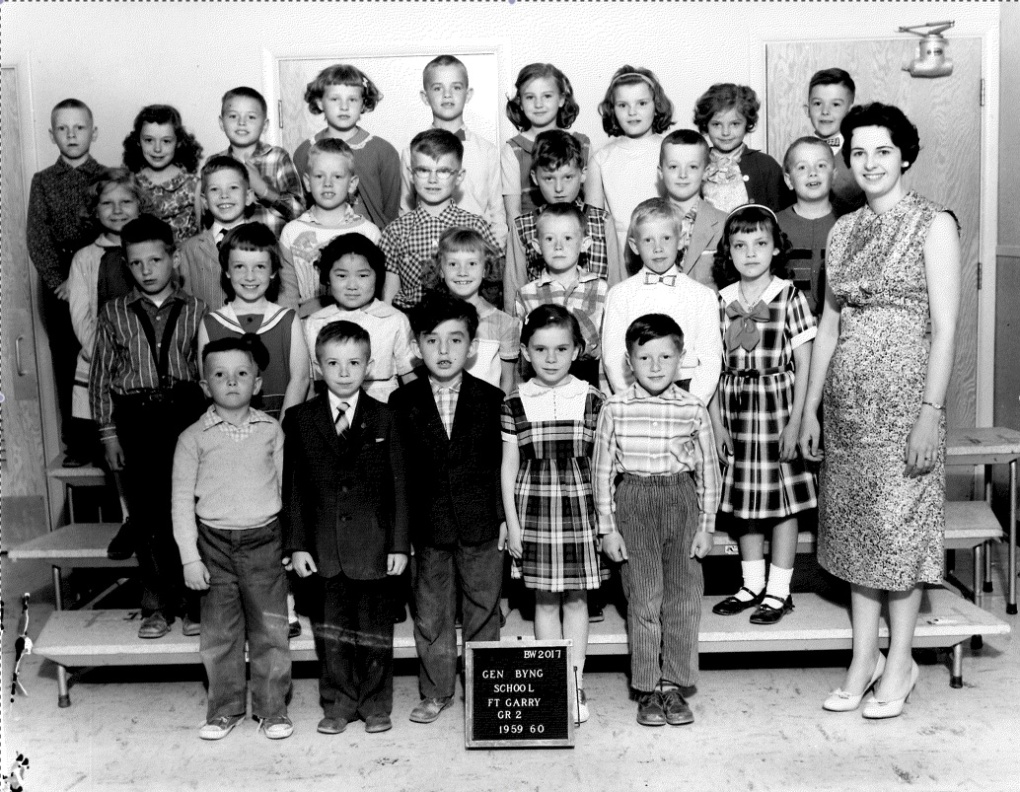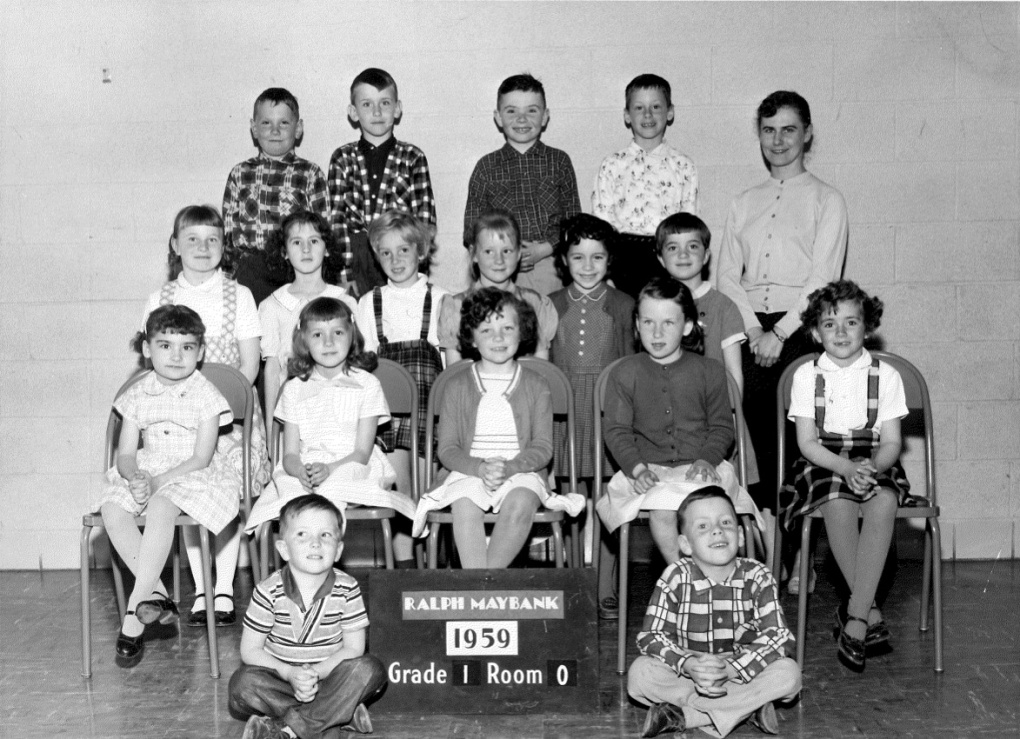
I’m not gonna say exactly who, but one of the girls in the back row is in the process of pooing her pants as this picture is being snapped. She will proudly tell me so as we march in double file back to our classroom. She isn’t smelly quite yet, but I feel compelled to tell her that sitting down is going to give her a fresh perspective on her new sense of bodily freedom. In the row in front of poopy-pants is Dayton (glasses and pointy haircut), who has a crush on another, less incontinent girl in that same row above.
Down at lower left, I’m concocting a cunning plan: back in class we’re going to have to make crayon pictures based on fairy tales of our choice. I’ve settled upon The Princess And The Pea. Her immense bedspread will be of such deep and unrelenting blue that my blue and blueish crayons will run out, and I’ll have to ask Agnes in the front row if I can borrow hers. To her, this will be a matter of saying OK and handing me a crayon. To me, well, here I am sixty years later, telling you about that moment.
John F Kennedy was not yet President, and the Beatles were still teenagers. My lazy “activist” dad made me wear a Ban the Bomb beanie and go door-to-door with leftist leaflets. Our grown-up neighbours were practising the Twist in their front yards, for all to see! The smell of barbecuing was everywhere, and boys were starting to sniff around my sister, the “vivacious” junior high undergrad. If you turned up at the Ringer’s Drugs parking lot Thursday after school, an honest and enthusiastic young man would sell you a Duncan Spin-Top for 29 cents, and give you a free lesson in making it do tricks. Who could have known that this, for us prairie winter-hardened, mostly white kids of all ages, would be as good as life would ever get? Someone shoulda said.







